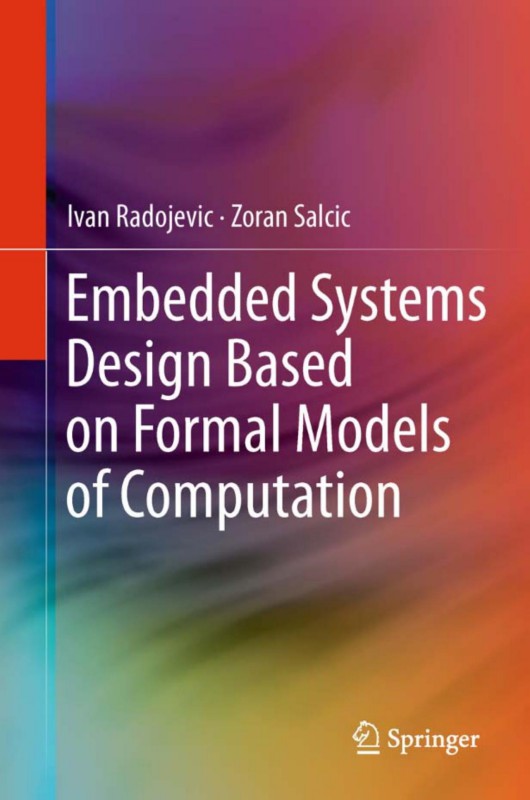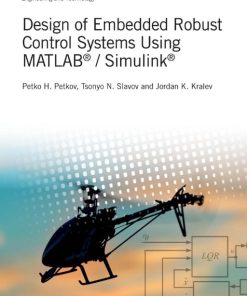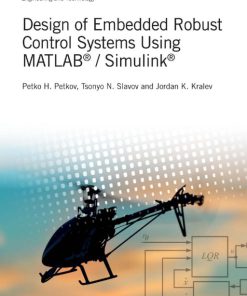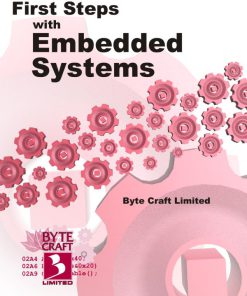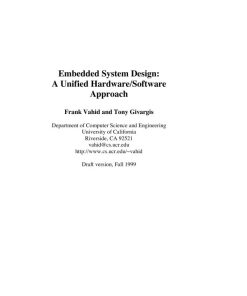Embedded Systems Design Based on Formal Models of Computation 1st Edition by Ivan Radojevic, Zoran Salcic ISBN 9789400715943
$50.00 Original price was: $50.00.$25.00Current price is: $25.00.
Authors:Ivan Radojevic, Zoran Salcic , Tags:Springer 2011; 9400715935 9789400715936 , Author sort:Ivan Radojevic, Zoran Salcic , Languages:Languages:eng
Embedded Systems Design Based on Formal Models of Computation 1st Edition by Ivan Radojevic, Zoran Salcic – Ebook PDF Instant Download/Delivery. 9789400715943
Full download Embedded Systems Design Based on Formal Models of Computation 1st Edition after payment

Product details:
ISBN 10:
ISBN 13: 9789400715943
Author: Ivan Radojevic, Zoran Salcic
“Models of Computation for Heterogeneous Embedded Systems” presents a model of computation for heterogeneous embedded systems called DFCharts. It targets heterogeneous systems by combining finite state machines (FSM) with synchronous dataflow graphs (SDFG). FSMs are connected in the same way as in Argos (a Statecharts variant with purely synchronous semantics) using three operators: synchronous parallel, refinement and hiding. The fourth operator, called asynchronous parallel, is introduced in DFCharts to connect FSMs with SDFGs. In the formal semantics of DFCharts, the operation of an SDFG is represented as an FSM. Using this representation, SDFGs are merged with FSMs so that the behaviour of a complete DFCharts specification can be expressed as a single, flat FSM. This allows system properties to be verified globally. The practical application of DFCharts has been demonstrated by linking it to widely used system-level languages Java, Esterel and SystemC.
Embedded Systems Design Based on Formal Models of Computation 1st Table of contents:
Chapter 1: Introduction to Embedded Systems
- What are Embedded Systems?
- Characteristics and Constraints of Embedded Systems
- Overview of Embedded System Design Process
- Challenges in Designing Embedded Systems
- The Role of Formal Methods in Embedded Systems
Chapter 2: Formal Models of Computation
- Overview of Formal Models
- Finite State Machines (FSMs) and Automata
- Petri Nets and Timed Automata
- Process Algebras and Calculus of Communicating Systems (CCS)
- Overview of Temporal Logic
- Formal Verification and Model Checking
Chapter 3: Requirements Analysis and Specification
- Capturing System Requirements Using Formal Methods
- Formal Specification Languages
- Abstract Models of Computation for Embedded Systems
- Modeling Requirements with Temporal Logic
- Use of Z-Notation and B-Method in Embedded System Design
Chapter 4: Design Methodology for Embedded Systems
- Formal Design Methods and Their Benefits
- Abstract Models for Hardware-Software Co-Design
- System-Level Design and Optimization
- Integration of Formal Models in the Design Process
- Transforming Formal Specifications to Implementations
Chapter 5: Formal Verification of Embedded Systems
- The Importance of Verification in Embedded Systems
- Formal Verification Techniques and Tools
- Model Checking for Embedded Systems
- Temporal Logic and Its Application to System Verification
- Proving Correctness Using Theorem Proving
Chapter 6: Model-Based Design for Embedded Systems
- Overview of Model-Based Design (MBD)
- Formal Modeling with Statecharts and UML
- System Modeling with Simulink and Stateflow
- Integration of Formal Methods with Model-Based Tools
- Automatic Code Generation from Formal Models
Chapter 7: Real-Time Embedded Systems Design
- Real-Time Constraints in Embedded Systems
- Formal Models for Real-Time Systems
- Timed Automata and Real-Time Temporal Logic
- Scheduling Algorithms and Real-Time Properties
- Case Studies of Real-Time Systems with Formal Verification
Chapter 8: Hardware-Software Co-Design Using Formal Methods
- Co-Design and Co-Simulation of Embedded Systems
- Formal Models for Hardware Description (VHDL, Verilog)
- Combining Formal Verification of Hardware and Software
- The Role of Hardware Description Languages (HDLs) in Formal Models
- Co-Design Tools and Integration with Formal Methods
Chapter 9: Case Studies of Embedded Systems Design
- Automotive Embedded Systems and Formal Methods
- Embedded Systems in Industrial Automation
- Formal Modeling for Cyber-Physical Systems
- Case Study: Medical Device Design and Verification
- Formal Methods in Wireless Sensor Networks
Chapter 10: Tools for Formal Modeling and Verification
- Overview of Formal Methods Tools for Embedded Systems
- Model Checking Tools: SPIN, UPPAAL, and NuSMV
- Theorem Proving Tools: Isabelle, Coq, and HOL
- Tools for Code Generation from Formal Models
- Integrating Formal Tools into the Development Workflow
Chapter 11: Future Trends and Challenges in Embedded Systems Design
- The Evolving Role of Formal Methods in Embedded Systems
- Challenges in Industrial Adoption of Formal Methods
- Advances in Model-Driven Engineering (MDE) for Embedded Systems
- Emerging Technologies: IoT, AI, and Machine Learning in Embedded Systems
- Prospects for Formal Methods in the Design of Autonomous Systems
People also search for Embedded Systems Design Based on Formal Models of Computation 1st:
embedded systems design models of computation
embedded computing design
embedded systems design patterns
embedded computing design magazine
embedded systems design magazine

